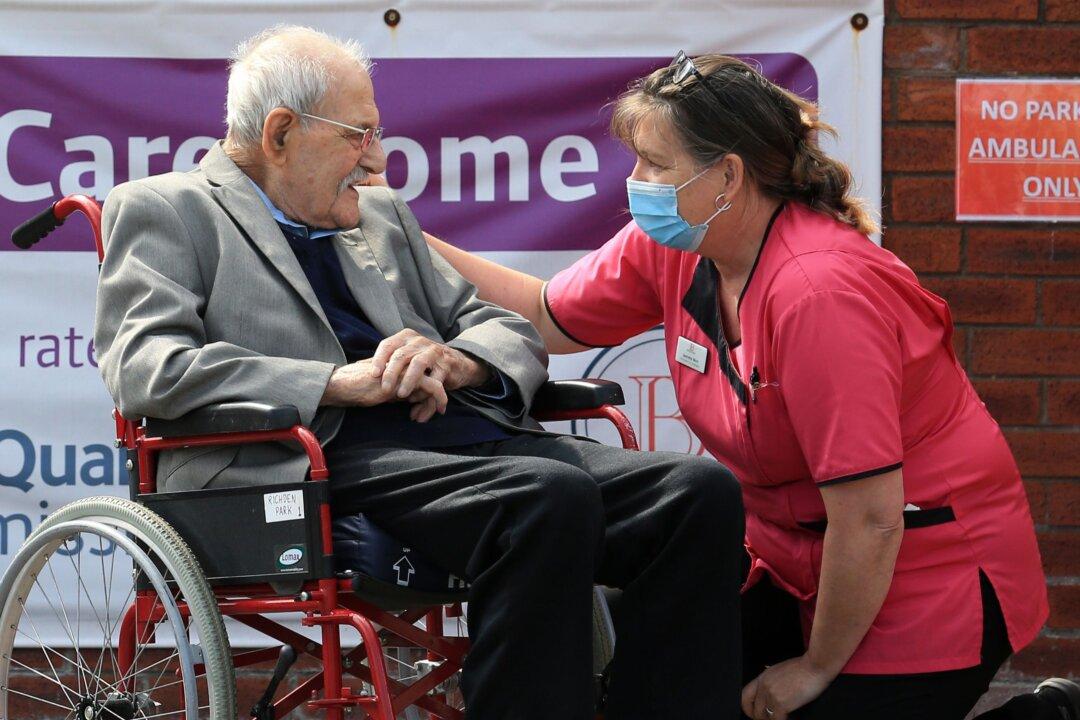By Christmas, people who have tested negative for the CCP virus will be allowed to visit their friends and family members living in care homes in England.
To facilitate safe visits the government said on Tuesday that care homes will be sent over a million tests in the coming month and some visits will start on Wednesday.





